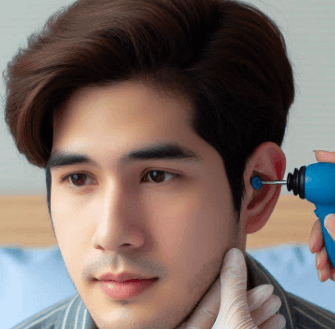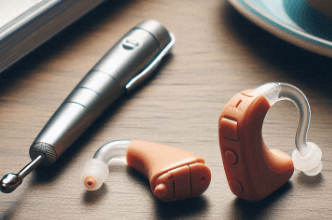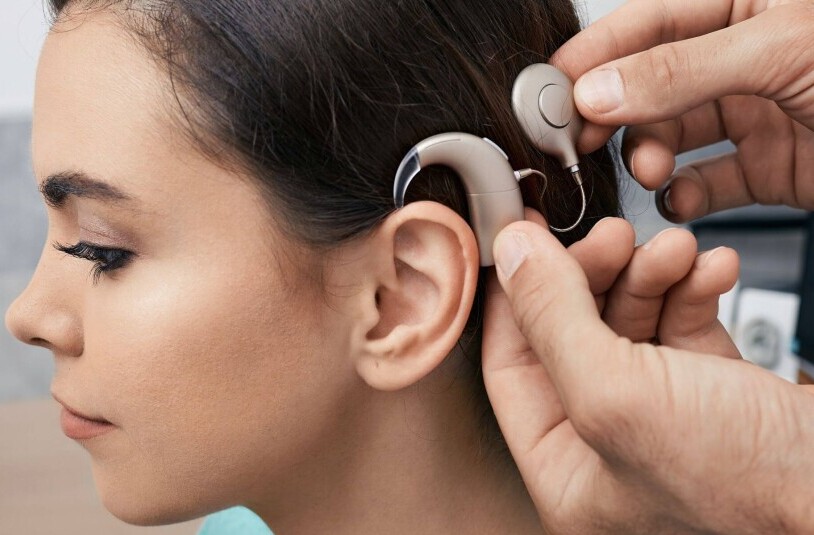Hearing loss is more common than you might think and affects folks from all over the globe. It’s a big topic—more than 466 million people worldwide grapple with some form of hearing loss, according to the World Health Organization. That’s like one in every ten people dealing with challenges in their daily communications.
And it’s not just an issue for the older generation, although age does play a role. Children and young adults aren’t immune. From congenital issues and diseases to loud music and noisy environments, there are heaps of reasons folks might experience this.
Let’s focus on who’s hit the hardest by hearing loss.
While everyone can be affected, statistics show that people over 65 have the hardest time because hearing loss commonly sneaks up on us as we age. The gradual buildup can often go unnoticed until it becomes significant, making regular check-ups essential.
Recognizing the signs early and understanding how common this is can help demystify the stigma around hearing loss.
With the right knowledge and support, dealing with hearing challenges becomes a whole lot more manageable.
Understanding the Causes of Hearing Loss
Hearing loss doesn’t just pop up out of nowhere—it’s got its reasons, and knowing them can help in managing it effectively.

Age is a huge factor, and as many folks age, they might notice their hearing slowly tailing off. This age-related hearing loss, known as presbycusis, creeps in as those tiny hair cells in your ears start wearing out from years of use.
But age isn’t the only culprit.
Noise-induced hearing loss is increasingly becoming a modern-day issue. Imagine the constant buzzing from loud concerts, headphones blasting at full volume, or even those sudden and loud sounds from work or the environment. Over time, these can stack up and damage hearing permanently.
Infections and diseases can also play a sneaky role in hearing loss. Conditions like otitis media, which is a middle ear infection, can affect hearing in children. Other medical conditions such as diabetes and hypertension have also been linked to hearing challenges.
Genetics also can’t be overlooked.
Some folks are born with a proclivity toward hearing issues. In these cases, hearing loss can start early on, even sometimes from birth.
Understanding these causes isn’t just about pointing fingers at what went wrong—it’s about finding the best paths for prevention, management, and treatment. Being in the know means you can take better control of your hearing health right from the start.
Diagnosing Hearing Loss: Common Tests and Procedures
Figuring out if you’ve got hearing loss is a crucial first step to getting the right help.
It all starts with a solid diagnosis, usually handled by specialists like audiologists or otolaryngologists—fancy terms for hearing experts and ear doctors.
Now, let’s talk tests.
Audiometry is the big one here.
It’s a straightforward test where you pop on some headphones and listen to sounds or speech played at different volumes and pitches. Simple, but super effective in outlining what frequencies you might be missing.
Tympanometry is another test to diagnose hearing loss.
This one checks how well your eardrum moves, which helps identify issues in the middle ear, like fluid buildup or infections.

For kids, there are specific tests designed to suit their attention spans and communication abilities, like Visual Reinforcement Audiometry. A well-rounded diagnosis often involves multiple tests to get the clearest picture.
Early diagnosis is key to getting back to a world full of sound.
Regular check-ups can catch changes early, giving you all the options without delay. So, if your hearing seems off, it’s time to book that appointment and find out what’s going on.
Non-Surgical Treatments For Hearing Loss: Removable Hearing Aids
When it comes to managing hearing loss without going under the knife, removable hearing aids are often the go-to choice. They’ve come a long way from the clunky models of the past, now offering sleek and sophisticated designs that are barely noticeable.
These devices work their magic by amplifying sounds, making them easier to hear. They come in various styles, like behind-the-ear (BTE) or in-the-canal (ITC) models, each catering to different levels of hearing loss and personal preferences.

What’s pretty cool about modern hearing aids is the tech they pack in.
Many are equipped with Bluetooth capabilities, allowing seamless connection with smartphones and other gadgets, and providing a more integrated listening experience.
While hearing aids are fantastic for many, they do come with their quirks. Background noise can sometimes be tricky, and it usually requires a period of adjustment as your ears get used to the amplified sound.
Regular maintenance is key. Cleaning them, popping in fresh batteries, or ensuring the rechargeable models have juice is part of everyday care.
Having a chat with an audiologist can help you choose the right model, fit, and features that tick all your boxes.
Removable hearing aids offer a significant improvement for those living with hearing loss, opening up the world of sound that might have been slipping away.
Check Out My Review of the Jabra 2 Enhance Select 500 Hearing Aid or the Mach 2 Pro Wireless Hearing Aid.
Surgical Options For Hearing Loss: Cochlear Implants and More
For those facing severe hearing loss that doesn’t respond well to regular hearing aids, surgical options like cochlear implants might be the ticket to better hearing.
Cochlear implants are cutting-edge devices that provide direct electrical stimulation to the auditory nerve.

They’re not just amplifiers like hearing aids but actually bypass the damaged part of the ear to send sound signals straight to the brain.
Getting a cochlear implant involves a surgical procedure.
It typically requires a dedicated team of professionals, including surgeons, audiologists, and therapists to guide you through the pre-surgery assessments, the procedure itself, and post-surgery adjustments.
The benefits can be life-changing, especially for individuals with profound hearing loss.
Many people experience improved clarity in speech and a better ability to engage with the world around them. However, results can vary, and it takes time and therapy to fully adjust to hearing with the implant.
Besides cochlear implants, bone-anchored hearing systems are another surgical option. These systems are beneficial for those with conductive hearing loss or single-sided deafness, utilizing bone conduction to transmit sound directly to the inner ear.
Choosing to go the surgical route is a significant decision. It requires careful consideration, and thorough discussions with healthcare providers to understand the risks, benefits, and the commitment involved in post-surgical rehabilitation and follow-ups.
Recommended Reading: What Are Some Medications To Use For Hearing Loss
Complementary Therapies for Hearing Improvement Or Hearing Loss
Alongside the traditional medical treatments, there are complementary therapies that a lot of folks find helpful in improving their hearing situation.
Auditory training is one option that can enhance listening skills.
Think of it like a workout for your ears and brain that helps them get better at interpreting sounds. These exercises can assist in adapting to hearing devices or managing conditions like tinnitus.
Assistive listening devices (ALDs) are another strong support tool.
These gadgets boast various helpful features like amplified telephones or personal FM systems, which can make everyday communication much smoother.
Lifestyle adjustments can also play a role.
Reducing exposure to loud environments, staying healthy, and protecting your ears can prevent further damage. The right diet, including vitamins and minerals that support hearing health, can complement other treatments.
Stress management techniques like meditation or yoga can indirectly benefit those with hearing loss or tinnitus by improving overall well-being and focus, making it easier to cope with hearing challenges.
These therapies and lifestyle tweaks aren’t magical fix, but paired with medical treatments, they can significantly enhance the quality of life for someone managing hearing loss.
Conclusion: Future Directions and Innovation in Hearing Loss Treatment
The landscape of hearing loss treatment is always evolving, bringing new hope and possibilities. Innovation in this field holds promise for even more effective solutions.
Emerging technologies like advanced digital hearing aids and AI-driven cochlear implants are continually being developed. These devices aim to mimic natural hearing more closely, making the experience as real and smooth as possible.
Exciting research in gene therapy and regenerative medicine is underway. Scientists are exploring ways to regenerate those essential hair cells in the ear, potentially reversing hearing loss at its root cause.
Improved diagnostics using smart technologies could soon allow for real-time monitoring of hearing health, helping catch issues before they escalate. This proactive approach can empower individuals to take charge of their hearing earlier.
Increased awareness and accessibility are also paving the way for more people to benefit from these advancements, regardless of their location or economic status.
While it might take years for some of these groundbreaking solutions to become commonplace, staying informed and proactive remains crucial.
So stay tuned to our website and sign up here to be kept informed on the latest developments about hearing health.
In the meantime, let’s try to embrace the future of hearing health more by empowering ourselves to overcome challenges and enjoy fuller lives.
What treatments have you tried or are thinking of trying to get better hearing?
Share your comments or thoughts below.
Looking forward to hearing from you.
Regards and Take Care
Roopesh
